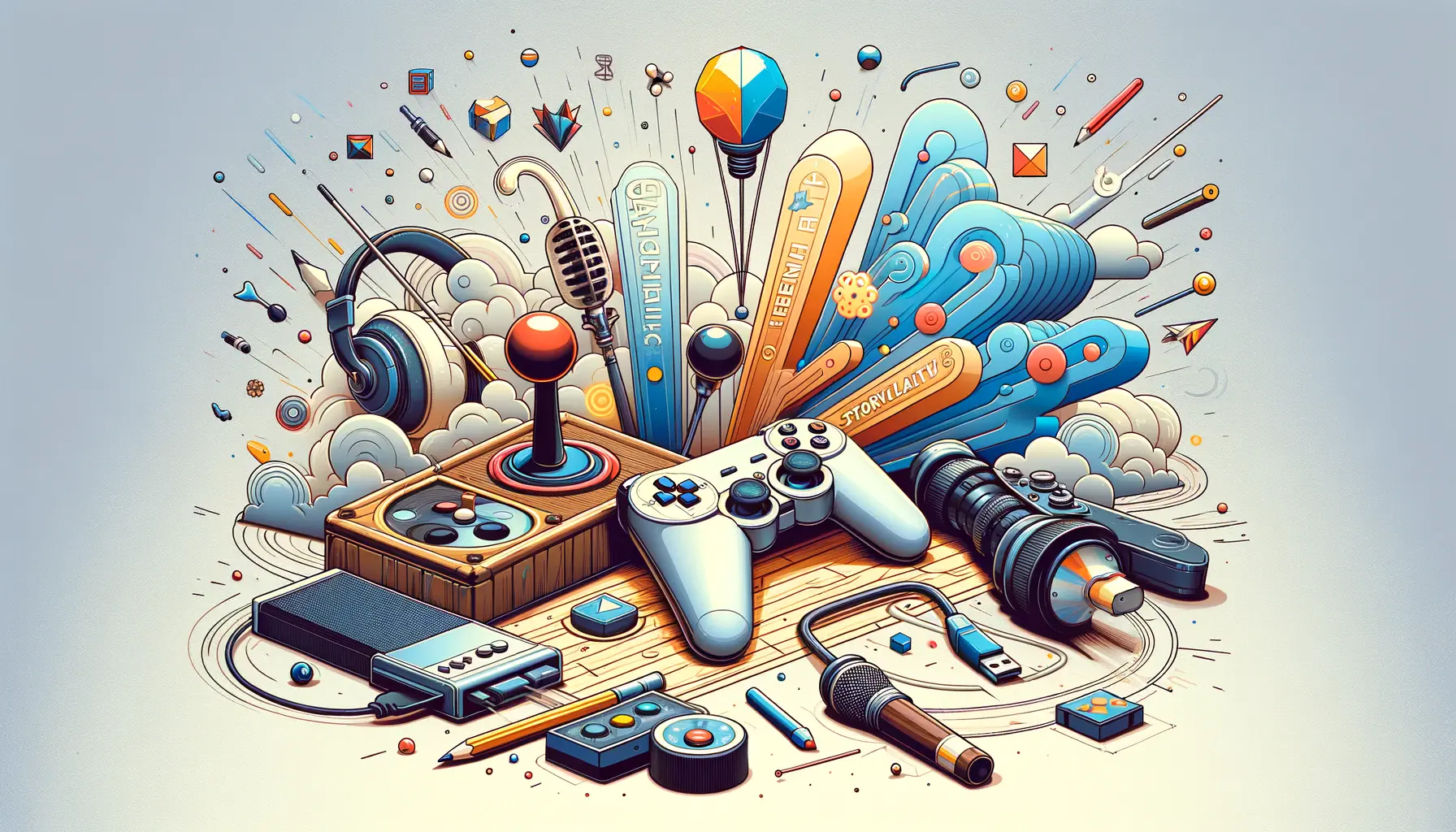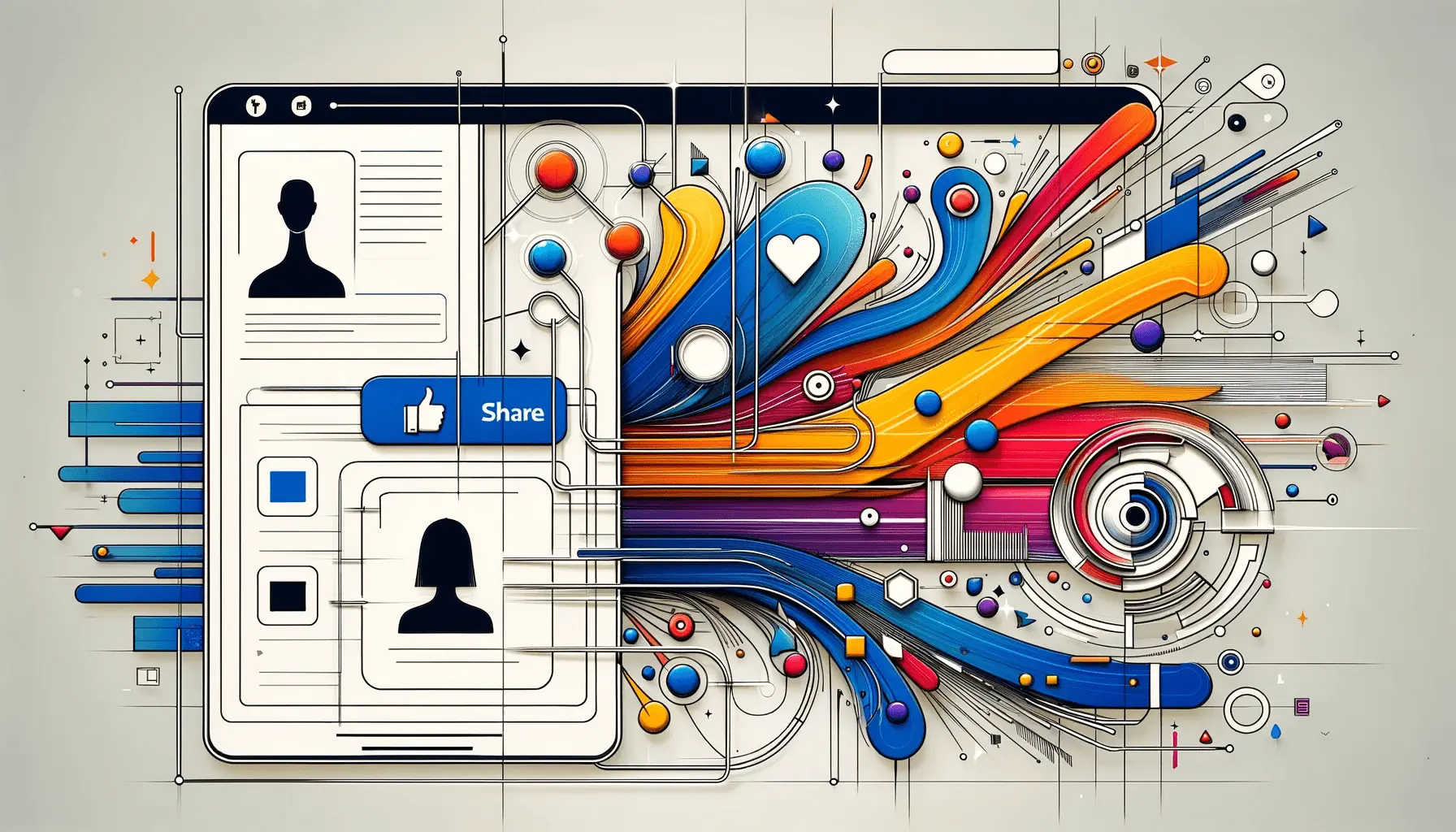The gaming industry is on the cusp of a revolution, thanks to the advent of advanced artificial intelligence technologies.
Among these, ChatGPT 4 has emerged as a pivotal tool in crafting immersive and dynamic game narratives, transforming the way stories are told within the virtual realms.
This evolution marks a significant shift from traditional game design, where narratives were once static and unchanging, to a new era where stories can adapt and evolve based on player interactions.
ChatGPT 4, with its sophisticated language understanding and generation capabilities, offers game developers an unprecedented opportunity to create complex, branching narratives that respond to every player’s actions and decisions.
This not only enhances the gaming experience by providing a unique journey for each player but also opens up new possibilities for storytelling in games.
The impact of ChatGPT 4 on gaming is profound, promising to redefine player engagement and narrative depth in the industry.
- Exploring the Capabilities of ChatGPT 4 in Gaming
- Integrating ChatGPT 4 into Game Development Processes
- Challenges and Solutions in Implementing ChatGPT 4
- Future Trends: ChatGPT 4 and Beyond in Gaming
- Enhancing Gameplay Mechanics with ChatGPT 4
- ChatGPT 4’s Role in Game Testing and Quality Assurance
- Community and Modding: Expanding Game Lifespan with ChatGPT 4
- Revolutionizing Gaming with ChatGPT 4: A New Era of Interactive Narratives
- ChatGPT 4 for Gaming: Frequently Asked Questions
Exploring the Capabilities of ChatGPT 4 in Gaming
Dynamic Narrative Generation
One of the standout features of ChatGPT 4 is its ability to generate dynamic narratives.
This means that game developers can now create stories that adapt in real-time to the player’s choices and actions.
Unlike traditional games, where the story follows a predetermined path, games powered by ChatGPT 4 can offer a multitude of narrative outcomes, making each playthrough unique.
This level of narrative flexibility was previously unattainable and represents a significant leap forward in interactive storytelling.
The technology behind ChatGPT 4 enables it to understand context and player input, allowing it to craft responses and story elements that are coherent and relevant to the ongoing narrative.
This capability ensures that the game remains engaging and immersive, as players feel their decisions genuinely impact the story’s direction and outcome.
Enhancing Character Development
Character development is another area where ChatGPT 4 shines.
By leveraging its advanced language models, game developers can create non-player characters (NPCs) that offer more than just scripted responses.
NPCs can now engage in meaningful conversations, react to player actions, and even evolve over time.
This not only adds depth to the game’s world but also enhances the emotional impact of the narrative, as players form connections with these characters.
Furthermore, ChatGPT 4’s ability to generate diverse dialogues and character interactions means that NPCs can exhibit a wide range of personalities and emotions.
This variability adds richness to the game’s narrative landscape, making the world feel alive and populated with unique individuals, each with their own stories and motivations.
ChatGPT 4’s impact on gaming narratives and character development is transformative, offering a new level of interactivity and immersion in video games.
Integrating ChatGPT 4 into Game Development Processes
The integration of ChatGPT 4 into the game development process heralds a new era of creativity and efficiency.
Developers now have at their disposal a tool that not only enhances narrative depth but also streamlines the creation of complex game worlds.
This section delves into the practical aspects of incorporating ChatGPT 4 into game development, highlighting its impact on design workflows and the overall development cycle.
At the heart of ChatGPT 4’s appeal to game developers is its ability to automate and assist in the generation of content.
From dialogues and quest texts to environmental descriptions and lore, ChatGPT 4 can produce a wide range of textual content, significantly reducing the time and effort required from the development team.
This capability is particularly beneficial for indie developers and smaller studios, where resources are often limited.
Streamlining Content Creation
- Automated Dialogue Generation: ChatGPT 4 can quickly generate dialogues for various characters, making it easier to populate the game world with rich, interactive NPCs.
- Quest and Lore Writing: Crafting engaging quest narratives and background lore is made more efficient with ChatGPT 4, allowing for a deeper and more immersive game world.
- Environmental Descriptions: With ChatGPT 4, developers can create detailed and varied descriptions of game environments, enhancing the visual and narrative immersion.
Enhancing Creative Collaboration
ChatGPT 4 also acts as a creative collaborator, offering developers a tool to brainstorm and refine ideas.
By inputting initial concepts or themes, developers can use ChatGPT 4 to explore various narrative directions, character arcs, and world-building elements.
This collaborative process not only sparks creativity but also helps in overcoming writer’s block, ensuring that the game’s narrative remains dynamic and engaging.
Moreover, ChatGPT 4’s ability to understand and generate text based on specific genres or styles allows for a tailored approach to game storytelling.
Whether developing a high-fantasy epic, a sci-fi adventure, or a horror survival game, ChatGPT 4 can adapt its output to fit the desired narrative tone and complexity.
Facilitating Player Feedback Integration
Another significant advantage of ChatGPT 4 in game development is its role in integrating player feedback into the game narrative.
Developers can use ChatGPT 4 to quickly iterate on story elements based on player reactions and suggestions.
This responsiveness to player input not only enhances the game’s appeal but also fosters a sense of community and player investment in the game’s world.
By analyzing player feedback and incorporating it into the narrative development process, ChatGPT 4 helps ensure that the game evolves in a direction that resonates with its audience.
This iterative process is crucial for maintaining player engagement and ensuring the game’s long-term success.
The integration of ChatGPT 4 into game development processes represents a paradigm shift, offering both creative and practical benefits that enhance the storytelling and efficiency of game creation.
Challenges and Solutions in Implementing ChatGPT 4
While the integration of ChatGPT 4 into gaming narratives offers numerous advantages, it also presents unique challenges.
These challenges range from technical limitations to ethical considerations.
However, with every challenge comes a solution, and understanding these can help developers maximize the benefits of ChatGPT 4 while mitigating potential drawbacks.
Addressing Technical Limitations
One of the primary challenges in implementing ChatGPT 4 is managing its technical demands.
The AI’s sophisticated algorithms require substantial computational resources, which can be a hurdle for smaller development teams or indie developers.
Additionally, ensuring seamless integration of dynamically generated content into the game’s existing narrative structure can be complex.
- Solution: Developers can overcome these technical limitations by utilizing cloud-based AI services, which offer scalable computational power to handle ChatGPT 4’s demands. For integration, adopting modular narrative designs allows for easier insertion of AI-generated content without disrupting the game’s flow.
Navigating Ethical Considerations
The use of AI in creating game narratives raises ethical questions, particularly regarding content originality and the potential for generating inappropriate or offensive material.
Ensuring that AI-generated content aligns with the game’s themes and audience expectations is crucial.
- Solution: Implementing content filters and moderation tools can help screen AI-generated material before it reaches players. Additionally, setting clear parameters for ChatGPT 4 based on the game’s genre and target audience can minimize the risk of generating unsuitable content.
Ensuring Narrative Coherence
Maintaining narrative coherence when integrating AI-generated content is another challenge.
The risk of generating disjointed or irrelevant story elements can disrupt the player’s immersion and engagement with the game.
- Solution: To ensure narrative coherence, developers can employ a hybrid approach, combining AI-generated content with human oversight. This allows for the creative flexibility of ChatGPT 4 while ensuring that all narrative elements contribute meaningfully to the game’s overarching story.
Facilitating Player Interaction
Another challenge lies in designing game mechanics that effectively leverage ChatGPT 4’s capabilities to enhance player interaction.
Creating intuitive interfaces and interaction models that allow players to engage with AI-generated content in meaningful ways is essential.
- Solution: Developers can address this by designing interaction systems that are both flexible and user-friendly, allowing players to naturally explore and influence the game’s narrative. Incorporating feedback loops where player choices directly impact subsequent AI-generated content can further enhance interaction.
Overcoming the challenges of implementing ChatGPT 4 in gaming requires a combination of technical solutions, ethical considerations, and creative design strategies. By addressing these challenges, developers can unlock the full potential of AI in creating immersive and dynamic game narratives.
Future Trends: ChatGPT 4 and Beyond in Gaming
The integration of ChatGPT 4 into gaming is just the beginning of a transformative journey for the industry.
As technology evolves, future trends in AI and gaming promise to further revolutionize how narratives are crafted and experienced.
This section explores the potential future directions of ChatGPT and AI in gaming, highlighting the exciting possibilities and advancements on the horizon.
Advanced AI Personalization
One of the most anticipated trends is the advancement of AI personalization in gaming.
Future iterations of ChatGPT and similar technologies could offer even more sophisticated understanding of player preferences, behaviors, and emotional responses.
This would enable the creation of games that adapt not just to player choices, but also to their emotional state, providing a deeply personalized narrative experience.
- Games could dynamically adjust difficulty, storylines, and character interactions based on real-time analysis of player engagement and emotions.
- Personalized content generation could extend to creating custom game worlds, quests, and challenges tailored to individual players’ tastes.
Seamless Cross-Platform Narratives
As gaming becomes increasingly cross-platform, future AI technologies could enable seamless narrative experiences across different devices and mediums.
ChatGPT could play a central role in crafting stories that players can engage with consistently, whether they are playing on a console, PC, mobile device, or even in augmented or virtual reality environments.
- AI could synchronize narrative progress and player choices across platforms, ensuring a cohesive experience no matter the medium.
- Enhanced AI models could generate content that optimally utilizes the unique features of each platform, from immersive VR worlds to interactive mobile narratives.
Collaborative AI-Player Storytelling
The future of gaming could see a shift towards collaborative AI-player storytelling, where players and AI work together to create the narrative in real-time.
This would represent a significant evolution from the current model of AI as a tool for content generation to AI as a creative partner in the storytelling process.
- Players could directly influence the game’s story development, with AI responding to their inputs with creative suggestions and narrative branches.
- This collaborative approach could lead to highly dynamic and creative game narratives, with endless possibilities for story evolution and player engagement.
Enhanced Natural Language Processing
Future advancements in natural language processing (NLP) and understanding (NLU) are expected to further enhance the capabilities of AI like ChatGPT in gaming.
These improvements could lead to even more natural and engaging dialogues, character interactions, and narrative depth.
- AI could understand and generate dialogue with nuanced emotional tones, regional dialects, and complex linguistic structures, making game characters more realistic and relatable.
- Enhanced NLP and NLU would also improve AI’s ability to interpret player inputs, allowing for more nuanced and meaningful interactions within the game.
The future of ChatGPT and AI in gaming holds immense potential for creating immersive, personalized, and dynamically evolving narratives. As technology advances, the boundaries between player and storyteller may blur, leading to a new era of interactive storytelling that is as limitless as the imagination.
Enhancing Gameplay Mechanics with ChatGPT 4
The application of ChatGPT 4 in gaming extends beyond narrative creation and character development.
It also has the potential to significantly enhance gameplay mechanics, making games more interactive, intelligent, and adaptable.
This section explores how ChatGPT 4 can be integrated into gameplay mechanics to create richer gaming experiences that respond dynamically to player actions and decisions.
Dynamic Quest Systems
ChatGPT 4 can revolutionize the way quests are designed and implemented in games.
By leveraging its AI capabilities, developers can create dynamic quest systems that adapt to player choices, resulting in a more personalized and engaging gameplay experience.
- Quests can evolve based on the player’s interactions with the game world and NPCs, leading to multiple outcomes and paths.
- ChatGPT 4 can generate contextually relevant quests by analyzing the player’s progress, preferences, and play style, ensuring that the game remains challenging and interesting.
Intelligent NPC Behavior
NPCs powered by ChatGPT 4 can exhibit far more complex and realistic behaviors, significantly enhancing player immersion.
These NPCs can make decisions, form opinions about the player based on interactions, and even develop unique personalities over time.
- NPCs can remember past interactions with the player and reference them in future conversations, adding depth to the game’s narrative and world.
- The AI can simulate emotions and motivations for NPCs, making them more than just quest givers or obstacles, but integral parts of the story and game world.
Adaptive Difficulty Levels
ChatGPT 4 can be used to implement adaptive difficulty systems that adjust in real-time to the player’s skill level and preferences, ensuring that the game remains challenging but fair.
This can significantly improve player satisfaction and game longevity.
- The AI can analyze player performance and adjust game difficulty dynamically, providing a customized challenge that matches the player’s abilities.
- Adaptive difficulty can help maintain a balanced gameplay experience, preventing sections of the game from becoming too easy or frustratingly hard.
Procedural Content Generation
With ChatGPT 4, developers can take procedural content generation to new heights, creating game worlds, stories, and challenges that are unique for every player.
This not only enhances replayability but also makes each player’s experience truly one-of-a-kind.
- Game environments, items, and even NPCs can be generated on-the-fly, based on the game’s current state and the player’s actions.
- This approach to content generation can result in infinitely replayable games, with fresh experiences awaiting players each time they start a new game or session.
By integrating ChatGPT 4 into gameplay mechanics, developers can create games that are not only more engaging and immersive but also personalized and adaptive, offering players a truly dynamic gaming experience.
ChatGPT 4’s Role in Game Testing and Quality Assurance
The development of video games is a complex process that requires rigorous testing and quality assurance (QA) to ensure that the final product is free from bugs and provides a smooth player experience.
ChatGPT 4, with its advanced language processing and generation capabilities, is poised to revolutionize the way game testing and QA are conducted.
This section explores how ChatGPT 4 can be utilized to enhance game testing procedures and ensure higher quality game releases.
Automated Bug Reporting
One of the key applications of ChatGPT 4 in game testing is the automation of bug reporting.
By integrating ChatGPT 4 into the game’s testing framework, developers can create systems that automatically generate detailed bug reports based on testers’ inputs or automated testing scripts.
- Testers can describe the issues they encounter in natural language, and ChatGPT 4 can process this information to generate structured and detailed bug reports, including potential steps to reproduce the issue.
- This automation can significantly speed up the bug reporting process, allowing developers to address issues more efficiently and improve the overall quality of the game.
Dialogue and Narrative Testing
For games that rely heavily on narrative and dialogue, ChatGPT 4 can be an invaluable tool for testing the coherence, consistency, and impact of the game’s story.
By simulating conversations and narrative paths, ChatGPT 4 can help identify narrative inconsistencies or dialogue issues that could detract from the player’s experience.
- The AI can simulate multiple playthroughs with different decision paths, ensuring that the narrative remains coherent and engaging across various scenarios.
- This level of narrative testing can help developers refine the story and dialogue, ensuring that the game delivers the intended emotional and storytelling impact.
Player Feedback Analysis
ChatGPT 4 can also play a crucial role in analyzing player feedback during beta testing phases.
By processing feedback collected from forums, surveys, and in-game reporting tools, ChatGPT 4 can identify common issues, suggestions, and player sentiments regarding the game.
- This analysis can provide developers with actionable insights into areas of the game that may require adjustments, enhancements, or further testing.
- Understanding player feedback at scale can help ensure that the game meets or exceeds player expectations upon release.
Localization Testing
Localization is a critical aspect of game development, ensuring that games are accessible and enjoyable for players across different languages and cultures.
ChatGPT 4 can assist in the localization testing process by generating localized game content and testing it for linguistic and cultural accuracy.
- The AI can help identify translation errors, cultural inaccuracies, or contextually inappropriate content, ensuring that the game’s localization is respectful and engaging for all target audiences.
- This can help developers avoid potential issues that could arise from poor localization, enhancing the global appeal of the game.
Incorporating ChatGPT 4 into game testing and QA processes can lead to more efficient bug reporting, improved narrative coherence, insightful player feedback analysis, and thorough localization testing, ultimately resulting in higher quality game releases.
Community and Modding: Expanding Game Lifespan with ChatGPT 4
The gaming community and modders play a crucial role in extending the lifespan and enhancing the value of video games.
ChatGPT 4 opens up new possibilities for community engagement and modding by providing tools and capabilities that empower users to create, customize, and share their content.
This section explores how ChatGPT 4 can facilitate community-driven game development and modding, fostering a more vibrant and engaged gaming ecosystem.
Empowering Community-Driven Content Creation
ChatGPT 4 can significantly lower the barriers to content creation for community members and modders.
By leveraging its natural language processing capabilities, users can generate new game content, from dialogues and quests to entire storylines, without needing extensive programming knowledge.
- Community members can use simple prompts to create complex narrative content, enabling a broader range of gamers to contribute to the game’s universe.
- This democratization of content creation can lead to a richer and more diverse range of game experiences, as community members bring their unique ideas and perspectives to the game.
Supporting Mod Development
Mods have always been a vital part of the gaming community, allowing players to modify and enhance their gaming experience.
ChatGPT 4 can support mod developers by automating certain aspects of mod creation, from generating code snippets to creating in-game text.
- Mod developers can use ChatGPT 4 to streamline the development process, making it easier to create complex mods that add significant value to the game.
- Additionally, ChatGPT 4 can assist in troubleshooting and debugging mods by providing suggestions and solutions based on the modders’ descriptions of issues.
Facilitating Collaborative Storytelling
ChatGPT 4 can also enable collaborative storytelling within the gaming community, allowing players to collectively shape the game’s narrative.
Through forums, social media, or in-game tools, players can use ChatGPT 4 to contribute to ongoing stories, creating a dynamic and evolving narrative landscape.
- This collaborative approach can result in highly engaging and immersive game worlds that reflect the collective creativity of the community.
- It also encourages player investment and engagement, as players see their contributions directly influencing the game world.
Enhancing Community Engagement and Support
Finally, ChatGPT 4 can enhance community engagement and support by providing AI-powered tools for community management, support, and interaction.
From automated responses to frequently asked questions to generating content for community events, ChatGPT 4 can help foster a more active and supportive community.
- Community managers can use ChatGPT 4 to create engaging content for social media, forums, and in-game events, keeping the community engaged and informed.
- The AI can also provide personalized support to players, addressing their queries and concerns in real-time, enhancing the overall player experience.
By empowering community-driven content creation, supporting mod development, facilitating collaborative storytelling, and enhancing community engagement, ChatGPT 4 can significantly expand the lifespan and value of video games, fostering a more vibrant and engaged gaming ecosystem.
Revolutionizing Gaming with ChatGPT 4: A New Era of Interactive Narratives
The advent of ChatGPT 4 in the gaming industry marks a pivotal shift towards creating more immersive, dynamic, and personalized gaming experiences.
This technology has not only redefined narrative creation and character development but has also introduced innovative ways to enhance gameplay mechanics, streamline game testing, and foster community engagement.
As we stand on the brink of this new era, it’s clear that ChatGPT 4 is not just a tool but a transformative force that will shape the future of gaming.
The Future of Gaming Narratives
With ChatGPT 4, the gaming industry is witnessing the dawn of an era where narratives are no longer linear or static but are dynamic and evolving.
This technology enables the creation of stories that adapt to players’ choices, offering a unique journey for every player.
The implications of this are profound, promising to deliver not just games but experiences that are deeply personal and engaging.
As developers continue to explore the capabilities of ChatGPT 4, we can expect to see games that are not only entertaining but also rich in narrative depth and complexity.
Enhancing Player Engagement and Experience
The integration of ChatGPT 4 into gameplay mechanics and game testing processes signifies a leap towards creating games that are more responsive and adaptable to player actions and preferences.
From dynamic quest systems and intelligent NPC behavior to adaptive difficulty levels and procedural content generation, ChatGPT 4 is setting new standards for what games can offer.
Moreover, its role in automating bug reporting and facilitating player feedback analysis during game testing phases ensures that games not only meet but exceed player expectations.
Empowering Communities and Modders
- Community-Driven Content Creation: ChatGPT 4 lowers barriers to content creation, enabling community members and modders to contribute to the game’s universe, thereby enriching the gaming experience with diverse perspectives.
- Support for Mod Development: By automating aspects of mod creation and offering solutions for troubleshooting, ChatGPT 4 makes it easier for modders to enhance and extend the gameplay experience.
- Collaborative Storytelling: ChatGPT 4’s capabilities facilitate collaborative storytelling, allowing the gaming community to collectively shape the narrative landscape of games.
- Community Engagement and Support: Through AI-powered tools, ChatGPT 4 enhances community management and player support, fostering a more vibrant and engaged gaming ecosystem.
In conclusion, ChatGPT 4 for gaming is not just an evolution but a revolution that is set to redefine the boundaries of what games can be.
Its impact extends beyond the technical aspects of game development, touching upon the very essence of storytelling, player interaction, and community engagement.
As we look to the future, it’s evident that ChatGPT 4 will play a central role in shaping the next generation of games, making them more immersive, interactive, and personalized than ever before.
The journey into this new era of gaming is just beginning, and the possibilities are as limitless as our imagination.
ChatGPT 4 for Gaming: Frequently Asked Questions
Explore the most common inquiries about the revolutionary impact of ChatGPT 4 on the gaming industry.
ChatGPT 4 is an advanced AI model used in gaming for creating dynamic narratives, enhancing character interaction, and personalizing player experiences.
It generates dynamic storylines and dialogues that adapt to player choices, offering a unique and immersive narrative experience for each player.
Yes, it can develop NPCs with complex behaviors and dialogues, making them more lifelike and enhancing the game’s overall immersion.
ChatGPT 4 streamlines content creation, aids in game testing, and facilitates player feedback integration, improving efficiency and quality.
It enables easier content and mod creation, fostering community-driven game development and enhancing the game’s longevity.
Yes, it automates bug reporting, assists in narrative and dialogue testing, and helps analyze player feedback for quality assurance.
ChatGPT 4 can adjust game difficulty based on player performance, ensuring a balanced and personalized gaming experience.
Future advancements include more personalized gaming experiences, seamless cross-platform narratives, and collaborative AI-player storytelling.










